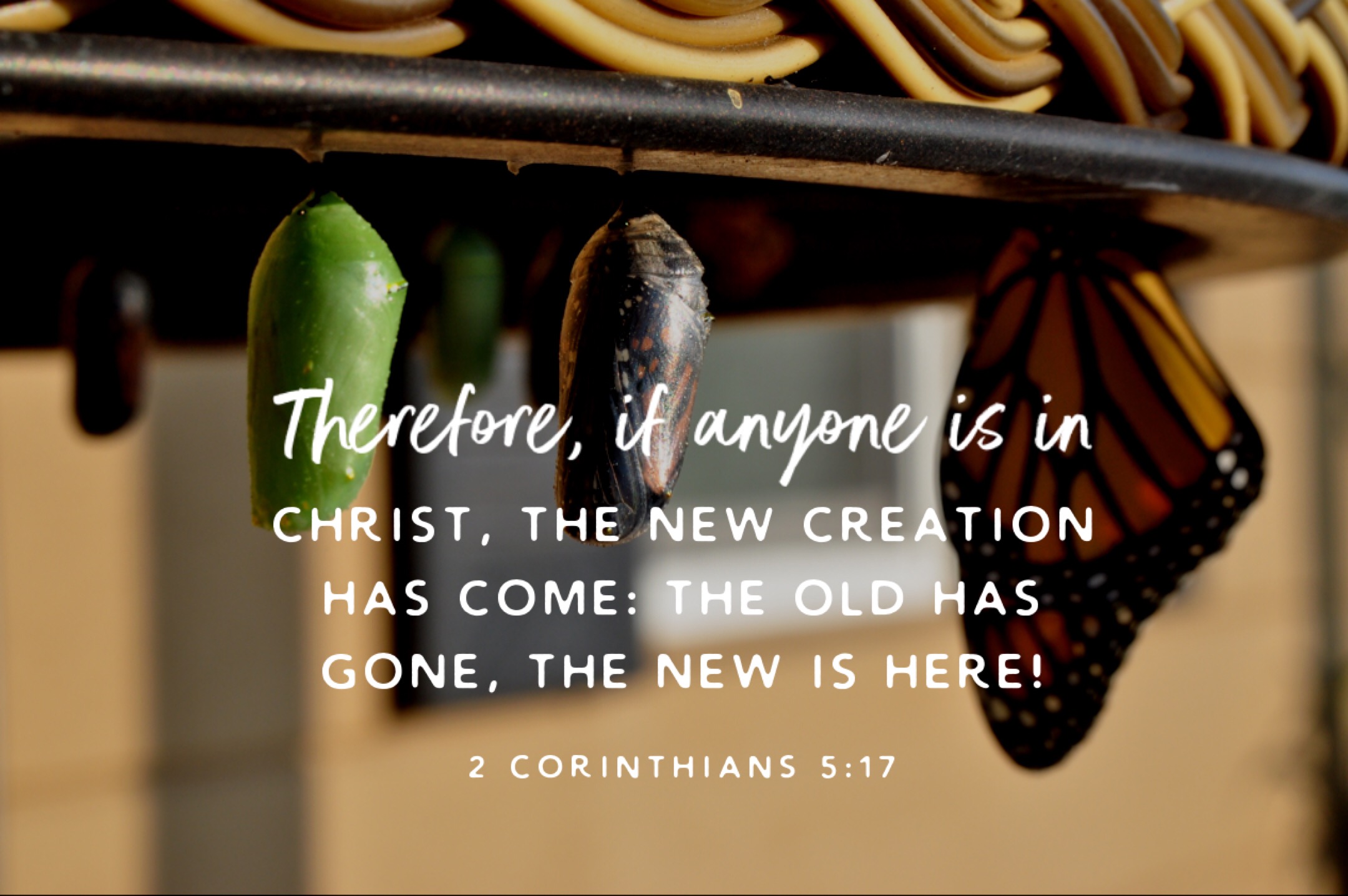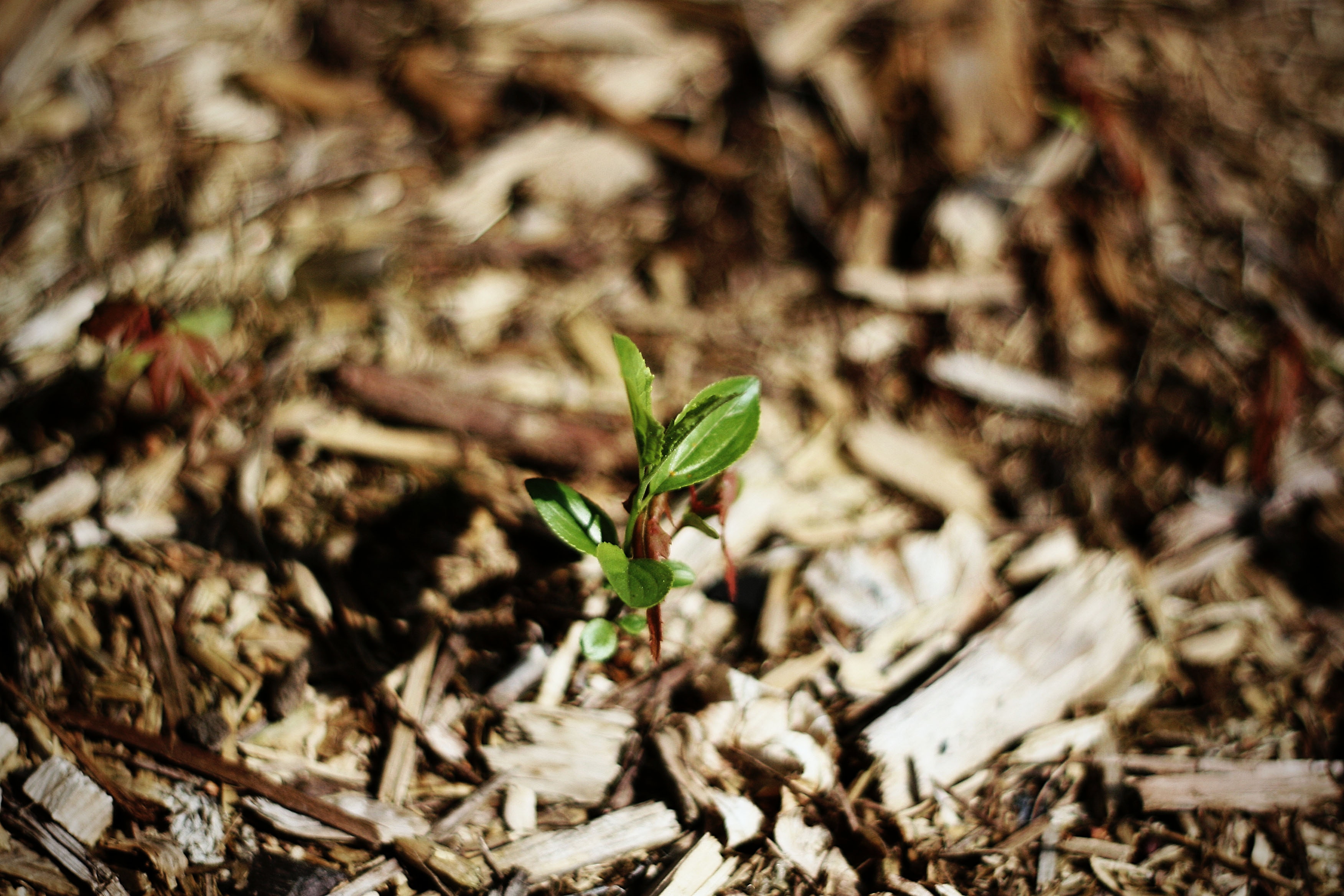Follow the butterfly.
This is a life motto of mine. It reminds me to stop, take a breath, enjoy the simple beauty of life, and thank God for his work in nature and the transforming work he’s constantly doing in me. Butterflies, like rainbows, are a sign to me that God hasn’t given up on me yet, so I can take hold of that hope and carry on.
We all know about butterflies, right? The Kindergarten teachers in the school where I work order butterfly kits every spring and the kids get to watch as the ugly little caterpillars go about their business, eat their food, molt a couple times, form a chrysalis, and then, one magical day, spread their wings to fly away. It’s one of the most fascinating processes in nature, perfected in the butterfly. Metamorphosis. Transformation. This land-bound, awkward creature hides itself away in a sort of tomb and becomes something utterly different. Something beautiful. Something that can fly.
The implications are obvious, aren’t they? The same God who invented the idea of metamorphosis can transform our lives, too. We start out simply enough, full of unrealized potential, learning the basic functions of life. We grow, get a little uncomfortable, shed some old habits and form new ones. We get a little better at life but we’re still awkward, land-bound creatures. We start to long for something more, something greater. We want to reach for something that is beyond what we are currently capable of achieving. But something is wrong. No matter how much it struggles, sheds its skin, and grows, a caterpillar will never be able to fly. It has to become something more. And so do we.
The process of transformation is strange, painful, and almost unnatural by outward appearances. In order to transform, a caterpillar has to stop moving, stop eating, stop growing. It retreats into a place of darkness and stillness that lasts for so long, it might as well be a kind of death. I think we miss this important truth sometimes. Growth happens when we move beyond our comfort zones into the unfamiliar. We can learn and grow all our lives, but for true transformation to take place, sometimes we have to stop moving and be still. Something in us might have to die. We might have to give up what we have always been in order to become what we were truly meant to be. How often are we guilty of stopping the process before it is finished? We struggle, we crawl along trying to do life on our own, and all the while God is whispering, “Stop. You can’t do this. I can. Let me.”
Let me be as clear as I can: Humans are powerful creatures. We can accomplish great things. We can transform our minds, our bodies, our lives. We can change the world, in small ways or in great ones. We can help each other. We can be generous and gentle and great. There is one thing we can never do alone. We cannot transform our souls. We are born with small, ugly souls, full of selfish ambition and unhealthy desires. Only the all-powerful God who designed us can transform our souls into something beautiful, something that is free to fly. He gave himself for us so that he could make us new. And it is only through the death of our land-bound souls that we are given the freedom to fly. That is redemption. That is transformation. That is the secret of the butterfly.
Whenever I see a butterfly, I stop for a moment and watch where it goes. When I lose sight of it, I close my eyes to give God thanks for what he has done in me, and renew my commitment to be who he has made me to be. I call it following the butterfly. I challenge you to do it, too.





